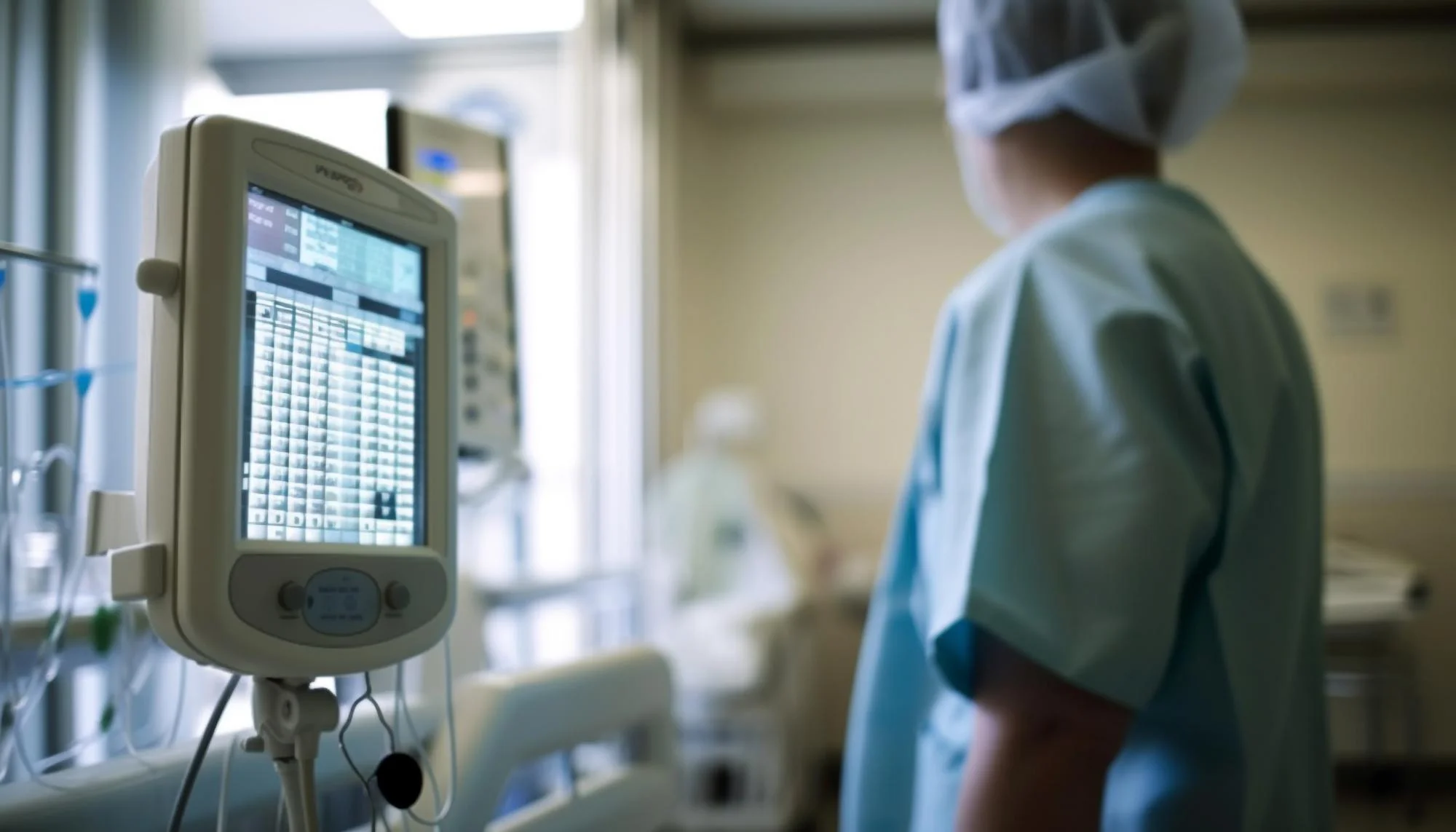Introduction
The Journal of the Pakistan Medical Association has recently published an article exploring the incidence of pulmonary barotrauma as a complication of mechanical ventilation in patients with COVID-19-associated acute respiratory distress syndrome (CARDS). The retrospective case-control study, led by Shahmeer S. Khan and colleagues, presents findings that may impact clinical strategies for managing severe respiratory complications caused by the SARS-CoV-2 virus. This news article delves into the implications of the study, providing insights for medical professionals dealing with the pandemic’s unprecedented challenges.
Background of the Study
Throughout the COVID-19 pandemic, mechanical ventilation has been a crucial life-saving intervention for patients with severe respiratory failure due to CARDS. However, mechanical ventilation can also lead to potentially severe complications, including pulmonary barotrauma, which encompasses lung injury caused by increased pressure and volume from ventilatory support.
The Study’s Aims and Methodology
Aimed at identifying the incidence of pulmonary barotrauma secondary to mechanical ventilation for CARDS and comparing it with the incidence due to other causes, Khan et al.’s study retrospectively analyzed data from October 2020 to March 2021 at the Aga Khan University Hospital, Karachi. The data was segregated into two groups: group 1 included patients with CARDS, while group 2 had patients who received mechanical ventilation due to other causes of acute respiratory distress syndrome (ARDS).
Patients’ medical records were meticulously reviewed, focusing on demographic and clinical data, while radiological images were examined via the institutional picture archiving and communication system. The data analysis was performed using SPSS 24.
Key Findings
Out of the 261 cases examined, 115 (44%) belonged to group 1, with 87 (75.6%) males and 28 (24.3%) females. Group 2 comprised 146 (56%) controls with 96 (65.7%) males and 50 (34.2%) females. The incidence of pulmonary barotrauma was starkly higher in the CARDS group (39 cases, 34%) compared to the non-CARDS group (8 cases, 5.5%), with the difference being statistically significant (p<0.0001).
Implications for Clinical Practice
The findings from Khan et al.’s study underscore a crucial aspect of the management of COVID-19 ARDS—the increased risk of pulmonary barotrauma compared to ARDS from other causes. This revelation necessitates heightened awareness and consideration when applying mechanical ventilation to these patients, potentially influencing ventilation strategies, monitoring parameters, and prompt recognition of complications.
The study also brings to light the importance of individualized patient care. Given that a more significant portion of affected individuals were males, and majority were aged over 60 years, these demographics might factor into risk assessment and management plans.
Future Perspectives and Research
While the study provides essential information on the complications associated with mechanical ventilation in CARDS, it also opens up avenues for further research. Questions about long-term outcomes of survivors, optimal ventilation strategies reducing risks of barotrauma, and the role of adjunctive therapies remain to be explored.
Moreover, the findings advocate for prospective studies to confirm the observed risks and potentially refine strategies that could mitigate the incidence of pulmonary barotrauma in mechanically ventilated COVID-19 patients.
Conclusion
The study by Khan and colleagues marks a significant step in understanding the complexities of managing severe COVID-19. As the medical community continues to navigate the pandemic’s evolution, such research is invaluable for developing effective and safe treatment protocols, ultimately aiming to reduce morbidity and mortality associated with the disease.
Keywords
1. COVID-19 ARDS
2. Mechanical ventilation complications
3. Pulmonary barotrauma
4. Respiratory distress syndrome
5. Mechanical ventilation strategies
References
1. Khan, S. S., Hilal, K. K., Arshad, A. F., Nankani, A., Zehra Rizvi, S. Z., & Haq, T. U. (2024). Pulmonary barotrauma as a complication of mechanical ventilation for management of COVID-19 associated acute respiratory distress syndrome (CARDS). The Journal of the Pakistan Medical Association, 74(1), 43-47. doi: 10.47391/JPMA.7900
2. ARDS Definition Task Force. (2012). Acute Respiratory Distress Syndrome: The Berlin Definition. JAMA, 307(23), 2526-2533. doi:10.1001/jama.2012.5669
3. Gattinoni, L., Chiumello, D., & Caironi, P. (2020). COVID-19 pneumonia: different respiratory treatments for different phenotypes? Intensive Care Med, 46, 1099-1102. doi:10.1007/s00134-020-06033-2
4. Fan, E., Del Sorbo, L., Goligher, E. C., Hodgson, C. L., Munshi, L., Walkey, A. J., … & Rubenfeld, G. D. (2021). An Official American Thoracic Society/European Society of Intensive Care Medicine/Society of Critical Care Medicine Clinical Practice Guideline: Mechanical Ventilation in Adult Patients with Acute Respiratory Distress Syndrome. Am J Respir Crit Care Med, 195(9), 1253-1263. doi:10.1164/rccm.201703-0548ST
5. Brochard, L., Slutsky, A., & Pesenti, A. (2017). Mechanical Ventilation to Minimize Progression of Lung Injury in Acute Respiratory Failure. Am J Respir Crit Care Med, 195(4), 438-442. doi:10.1164/rccm.201605-1081CP
DOI:
10.47391/JPMA.7900
